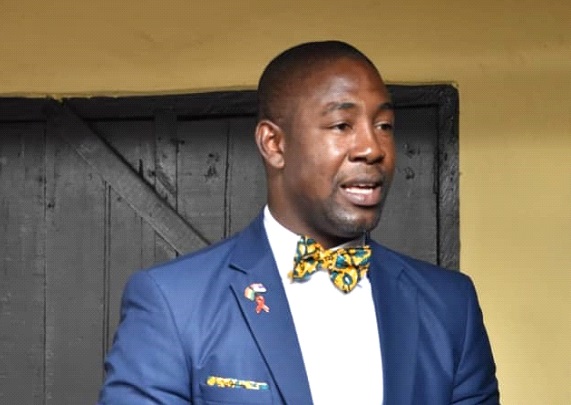Dr. Bernard Oko-Boye
DEPUTY HEALTH Minister-designate, Dr. Bernard Oko-Boye has called on people in leadership positions to help demystify the myth surrounding the coronavirus (COVID-19) pandemic by telling their people that the disease is real.
He believes wrong assumption and misinformation about COVID-19 have increased people’s reckless behaviour towards the pandemic and is making it difficult to stem the tide.
He has, therefore, admonished people to take seriously the viral respiratory disease that has killed thousands of people across the globe.
“Let’s even say Ghana has a mortality rate of 3 percent. What it means is that if 100 people get it three people can lose their lives. You may assume it is far from you until a relative becomes part of the 3 percent. And in statistics anytime you are the victim it is not 3 percent any more but actually 100 percent,” he indicated.
Responding to questions on what could be done to change people’s perception about the COVID-19 during his vetting in Parliament yesterday, Dr. Oko-Boye asked Ghanaians not to take refuge in the low numbers of the mortality and say it will take a long time for the disease to get close to them.
“Although, I speak on COVID-19, it was not close to home until one of my very good friends who is more or less a father to me, became a victim and since then the feeling has actually not been the same,” he stated.
He added: “You should not wait till your relative becomes a victim. Take the measures seriously and assume that you can be that one person who will be in a severe condition.”
Dr. Oko-Boye, who is the Member of Parliament for Ledzokuku in Teshie, said once Ghanaians take such an attitude, it would help the nation to contain the covid-19.
On the issue of total lockdown of the country, the nominee said such decision must be premised on science and not sentiments.
“For example, if you have 30 cases in Eastern Region, the absolute figure is not enough. You must now go beyond to look at where the cases are. If all the cases are in two-compound houses or three houses in a locality, you can lockdown that area and contain the virus.”
“But if you have five [cases] spread along six places then you can consider letting the whole region takes on limitation on movements,” he explained.
According to him, science and details of the cases are the determining factors that help government to arrive at a decision to either continue or upscale measures already put in place.
“But wherever you are, even if you are in the region that is not under partial lockdown, assume the person you are seeing as someone who has come into contact with ‘boga’ who has the virus and take good care of yourself.”
By Ernest Kofi Adu, Parliament House


